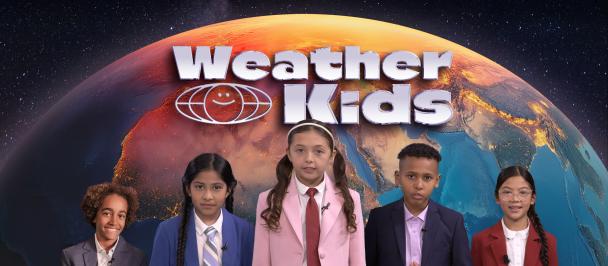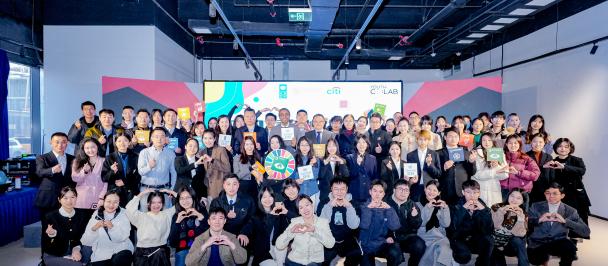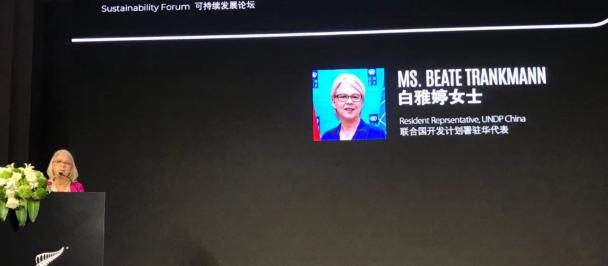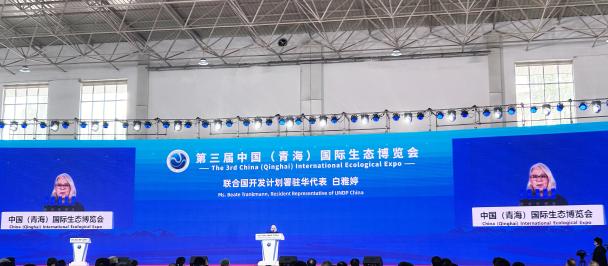Remarks by Mr James George at the Workshop on Advancing Renewable Energy Technology Transfer and Knowledge Exchanges towards the 2030 Agenda for Sustainable Development
April 7, 2023
Director General Huang Jing,
Director General Wang Rongfang,
President Jin Li,
Deputy Director General Vimal Nadeera,
Mr. Gosaye,
Mr. Guo Zehua,
Distinguished guests, dear colleagues,
On behalf of UNDP China, it is my great pleasure to welcome you to the workshop on Advancing Renewable Energy Technology Transfer and Knowledge Exchanges towards the 2030 Agenda for Sustainable Development.
We meet at a moment of great peril for our world.
With just 7 years left to achieve the 2030 Agenda for Sustainable Development and its 17 Goals, there is an urgent need for countries to come together to meet the critical development needs of our times.
This has never been more important – as our world currently faces multiple crises.
COVID-19 has pushed millions back into poverty, reversing roughly six years of development progress.
Global conflicts are pushing up the price of essential goods and energy, squeezing both individuals and governments, and triggering severe debt distress all around the world.
And global CO2 levels are at their highest in history2 with the world on course to exceed the 1.5 degrees warming target set by the Paris Agreement by more than double. With three-and-a-half billion people living in countries highly vulnerable to climate change3, the consequences of this would be catastrophic.
If we are to meet the goals of the 2030 Agenda – the world’s best chance to secure a livable planet and sustainable future for all – we urgently need to get back on track.
In recovering from this confluence of crises, we have a critical window of opportunity to chart a more sustainable development path forward, but this can only be done through greater collaboration, partnership, and solidarity between countries.
To this end, South-South and Triangular Cooperation can be a powerful vehicle to help accelerate the Sustainable Development Goals. Sharing experiences and insights among countries of the Global South is critical to ensure that we can identify and co-design solutions thatbest suit local development needs and contexts.
The Biogas, Biomass, and Solar Trilateral Cooperation Project, implemented by UNDP Ethiopia and UNDP Sri Lanka, is a perfect example of this. The project brings together three developing economies in China, Ethiopia, and Sri Lanka, with UNDP as a partner, to increase access to clean energy and advance low-carbon pathways.
With great thanks to many of you – who have made dedicated efforts over the past four years, we are proud to see important results and achievements that have come under the project. For example, in Sri Lanka, 9 technologies, covering 14 demonstration sites across 5 provinces, have been either fully installed or are near completion. This is expected to save as much as 70 thousand kilowatt-hours in energy and reduce approximately 40 tons of greenhouse gas emissions every year. And we’re making progress in Ethiopia in laying the foundation for the cooperation moving forward.
This project has also placed great emphasis on skills. transfer and mutual learning. As of the end of last year, despite disruptions caused by the COVID-19 pandemic, 12 workshops and training have been successfully convened strengthening two-way exchanges of knowledge and expertise.
I am confident that today’s workshop, the first in-person sharing session under the project in over three years, will provide you with fresh perspectives and views to better understand each other’s contexts, needs, and trajectories in pursuing a low-carbon development path.
In addition, I hope that the study tours and seminars can help shed light on concrete solutions and applicable technologies that can help us advance that shared ambition.
Moving forward, UNDP remains committed to supporting governments in advancing the SDGs and promoting an inclusive, nature and climate-positive development vision. Leveraging our global network, we stand ready to offer our expertise to all development cooperation actors, to support South-South and Triangular partnerships that help shape a greener and more just world for all.
In closing, I want to thank the Administrative Center for China’s Agenda 21 under China’s Ministry of Science and Technology, for organizing this event. Let me also express my appreciation to Fudan University and China Agricultural University for their amazing support.
I wish the workshop great success!
Thank you! Xie Xie!

 Locations
Locations



